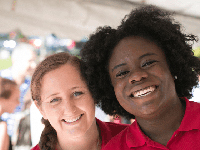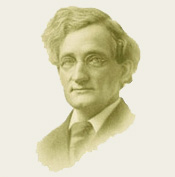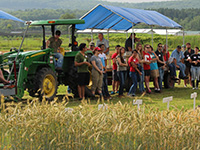Home | Unit 3
Overview
Through observation and hands-on interviews, youth learn and practice interviewing skills by asking questions that reflect on youth’s own perspective and actions on climate change problems.
Skill Level
Beginner/Intermediate/Advanced
Learner Outcomes, Youth will:
- Utilize the interview process to access information, share knowledge and seek ways to work together for positive change.
- Practice interview skills and apply critical thinking skills to identify a problem and pose questions for investigation.
- Relate existing knowledge about climate change action practices and demonstrate ways to address issues.
Education Standards
- NL-ENG.K-12.8 Developing Research Skills: Gather and synthesize information to create and communicate knowledge.
- NS.K-4.6, NS.5-8.6, NS.9-12.6 Personal and Social Perspectives: Personal and community health
Success Indicators
Reflect, explore and demonstrate how to embrace climate change action practices.
Life Skills
Sharing, marketable/useful skills, cooperation, communication
Time Needed
45 minutes
Materials List: Access to videos showcased in Activity 3.1 Action Takers, handouts, one per participant: Create Interviews in Three Steps, Practice Interview Form, Interview Form: Action Takers; leader references: Interview Skill Building: Vegetable Varieties Investigation
Youth Handouts
Leader Handout
Space
Appropriate space to accommodate small groups of two to conduct interviews.
Suggested Group Size
12-15 or more, small groups of 2
Acknowledgments
Cornell Garden-Based Learning Interview Skill Building: Vegetable Varieties Investigation
Introduction
Through observation and hands-on interviews, youth learn interviewing skills in four parts; by 1. Practicing interviewing and being interviewed by a partner; 2. Reviewing ‘Positive Interviewing Skills’; 3. Observing both effective and ineffective techniques modeled by an interview with the group leader; and 4. Incorporating new skills into another practice interview in the next activity 3.3. Interview questions will be based on rating the videos watched in Activity 3.1 Action Takers, and questions that reflect on youth’s own perspective and actions on climate change problems.
Opening Questions: Looking back to the “Action Takers” videos we watched in our last activity, think about similar actions you and others are taking now and might want to take in the future: what do you know and do about climate change problems?What personal changes would you like to make? What questions would you ask others about what they know and do about climate change problems? What changes would they like to make?
Background Information
Before the Activity
Prepare materials and handouts. Review and modify the Practice Interview Form if needed for your group’s skill level. Provide space to view videos, or links from 3.1 Action Takers if needed.
Let’s Do It!
Practice Your Interview Skills.
Using the Interview Skill Building: Vegetable Varieties Investigation as your guide, have participants work with a partner to practice their interviewing skills. Questions will be about rating the “Action Takers” videos watched in the last session, and how the videos inspired them to take action of their own.
Part One: Interview Partners
- Divide the group into interviewing pairs and provide one Practice Interview Form and a pencil to each person.
- Instruct participants to interview their partner and record the responses on the form, using the back of the form to ask any follow up questions of their own, and record the answers.
- Have partners switch after the first partner has completed the interview.
- After all students have had a chance to interview and be interviewed, come together as a group, and ask for volunteers to share what the experience was like. Ask questions such as: How did it feel to be interviewed? How did it feel to interview another person? What did you like about it? What was challenging? How do you think it might be different interviewing an adult/someone you don’t know?
Part Two: Review Positive Interviewing Skills
- Invite youth to take turns reading each of the skills under ‘3 Steps to a Great Interview’, including Positive Interviewing Skills, Gather Quality Responses, and End Positively sections.
- Ask whether these skills were observed in their own interviews. Which skills were used and which were not?
- How did it feel to the interviewee when a particular skill was used? Not used?
Part Three: Interview Demonstration
The purpose of this exercise is to demonstrate how interviewing styles and techniques affect the quality of the interview, and to become familiar with potential obstacles and ways to overcome these obstacles in quality data collection. Upon viewing the videos in 3.1 Action Takers, youth will rate videos in the interview process using the Interview Form: Rate the Action Taker Videos and their Projects.
- Ask for a pair of volunteers to interview you in front of the group, using the Interview Form: Rate the Action Taker Videos and their Projects. Another adult may help by keeping the group focused by observing the interview.
- Ask plenty of questions that may come up in the actual gardener interviews. Do not correct any mistakes or poor interviewing techniques at this time.
- Once the interview concludes, thank and applaud the volunteer interviewer. Ask the group to comment on positive interviewing techniques they noticed. Expand on their comments.
- Next, ask the audience and the interviewer if they noticed anything that seemed awkward or difficult during the interview. Were questions asked in a way that preserved the quality of the data collected? Were responses gathered for all questions? Were all of the interviewee’s questions answered? Did the interviewer pose any questions of his/ her own? If not, does the audience have any ideas for follow‐up questions that could be asked?
Part Four: Interview Partners ‐ Putting new skills to work!
- Divide group into interviewing pairs again – this time with different partners. Distribute the Interview Form: Rate the Action Taker Videos and their Projects to each person.
- Assign one of the videos to each group.
- Partners will practice interviewing each other as they did in the first round, but this time they will pretend to be gardeners and people in the community rating taking action towards Climate Change.
- During this exercise, leader(s) should observe the interviews in progress, making notes of positive skills being employed, as well as areas that may still need clarification.
- Finally, come together as a group and comment on any improvements that took place in these interviews. Clarify any questions and thank the youth for their active participation.
Talk It Over
Share
After all have had a chance to interview and be interviewed, come together as a group, and ask for volunteers to share what the experience was like.
Reflect
How did it feel to be interviewed? How did it feel to be interviewed by someone else? What did you like about it? What was challenging?
Generalize
How do you think it might be different interviewing an adult/someone you don’t know?
Apply
Explain that they will be developing their own set of questions that will be used to interview and video neighbors and others in their community who are acting on reducing their carbon footprint to make a difference.
References
Interview Skill Building: Vegetable Varieties Investigation









